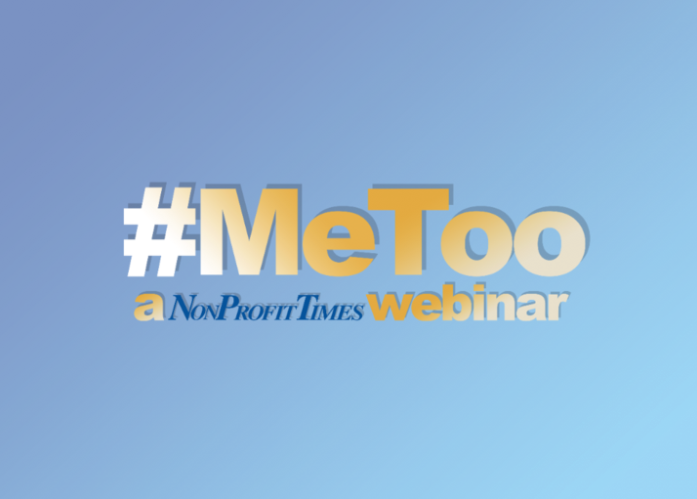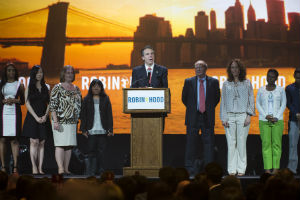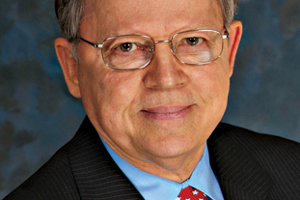In a webinar that could be described as ripped straight from the national news headlines, The NonProfit Times convened leaders from the areas of fundraising, law, and risk specialization to discuss the #MeToo movement and its impact on the nonprofit sector during a Thursday-afternoon webinar.
Unpleasant as it might be for leaders in the sector to think about, nonprofits have — at times — been front and center in conversations related to sexual harassment and abuse for the wrong reasons. NPT Editor-in-Chief Paul Clolery pointed to recent news stories involving the Humane Society of the United States and American Red Cross as examples. Lisa M. Brauner, an attorney with the law firm Perlman + Perlman in New York City, Melanie Lockwood Herman, executive director of the Nonprofit Risk Management Center, and Tycely Williams, vice president, development at the YWCA, discussed systemic issues relating to harassment that they see in the nonprofit workplace and some measures leaders can take to prevent abuses and nip festering issues in the bud.
Highlights from their respective presentations included:
- Herman discussed systemic issues facing the sector that might make nonprofit workplaces susceptible to harassment, including power hierarchies present in most offices. Stress, often found in nonprofit careers, has been shown to lead to more risk-taking, compulsive behavior among men, Herman said. There are also issues in that some charismatic leaders are placed on a pedestal and others look away when they abuse that privilege; some leaders might be thought of as incapable of misconduct, even by the victims themselves, and some victims might be hesitant to report abuse because of a fear of harming the mission.
- Failure to prevent and address harassment, beyond potential legal ramifications, can lead to a perception of guilt by association within the sector by outsiders and a loss of enthusiasm within sector employees. It takes six to nine months salary, at least, to replace a quality staffer that departs, Herman said;
- Williams highlighted that the first steps toward the path of changing behavior is changing beliefs. Organization leaders are well trained in sharing thoughts on mission and sustainability, but less so on values. Williams suggests clearly defining and adopting a set of organization-wide values.
Respect, dignity, and compassion are values that typically come up with respect to harassment, she said. These values should be tied to tangible policies and procedures to ensure accountability. Values should also be communicated and followed by external stakeholders and communicated to donors. When issues arise, as they tend to do, don’t let your story be told solely by news media. Come out in front of issues and explain what has been learned and changed when things run awry; and,
Set the tone that harassment will not be tolerated and hold violators accountable, Brauner said. There should be a set complaint procedure that is distributed to stakeholders and offer multiple channels through which to report. Once a complaint is received, the matter should be responded to promptly by following previously laid out procedures. Ensure that the complaining party is not retaliated against and hire an outside investigator as opposed to handling matters in-house, as per best practices. Investigations should provide confidentiality to the extent possible and conclude, if necessary, with meaningful sanctions.
Those wishing to listen to the hour-long program in its entirety can visit http://bit.ly/2FF22jE for a recording. Slides from the session will also be made available to those who download the recording or participated in the live webinar.












